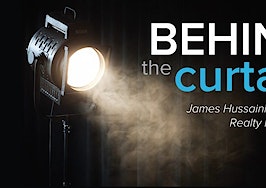Takeaways:
- Hiring new agents and brokers is the mainstay of any brokerage, but there are distinct differences between the traditional brokerage and the evolving brokerage models.
- New rivals enter the market with the intention of disrupting the established and new models alike.
- Once we look beyond the regulations, there is some latitude on how a brokerage operates, and the culture of the business is available to be molded by the owners.
Continuing the conversation from yesterday in “Is the traditional brokerage model obsolete? Part 1,” today we will continue to discuss and compare traditional and new brokerage patterns. We will look at both in the realms of recruiting, challengers and competition, and setup and operations.
Recruiting
Hiring new agents and brokers is the mainstay of any brokerage. But there are distinct differences between the traditional brokerage and the evolving brokerage models.
[Tweet “Hiring new blood is the mainstay of any brokerage, but there are differences.”]
Traditional brokerage model
Strength is in numbers. The bigger the agent and broker headcount, the more efficient the brokerage is in building market share.
New agents and brokers are brought on board as they seek a more recognized brand name to build consumer recognition of their real estate practice.
New brokerage model
Strength is in the specialization of the team members allowing for a more personalized client experience that drives referral customers and is the lifeblood of a profitable brokerage.
Recruiting is not a priority in the growth of business in the new brokerage model. It is apparent that taking a greater interest in the development of the agent’s or broker’s professionalism and business practices leads to a better brokerage culture and increased business. Retention is of primary importance.
Growth of teams is often from within as each member defines their specialty and improves the operation of the team through collaboration and cooperation.
New recruits are often attracted through referrals as the success of teams draws the attention of agents or brokers.
Recruits are often seeking a better foundation for their real estate practice and the benefits of building a specialty to grow their businesses become apparent.

Alvov / Shutterstock.com
Challengers and competition
As accepted technological systems become more prevalent, every real estate brokerage and businessperson is facing increased competition.
New rivals enter the market with the intention of disrupting the established and new models alike.
[Tweet “New rivals enter the market intent on disrupting established and new models alike.”]
Traditional brokerage models
Traditional brokerages are often slow to respond to change due to the costs of integrating new systems and practices into everyday use. The brokerage actions are more likely to be reactionary instead of innovative in the business practices.
New brokerage models
New brokerage models are more flexible and able to adapt to change due to the specialization of team members.
They are also more likely to accept innovation and integrate useful tools into everyday business processes.
Brokerage setup and operations
Every business has defined structures and in real estate, as heavily regulated as it is. There are legal, compliance and regulatory mandates to be observed and followed.
The basics define the structure of a real estate brokerage. But once we look beyond the regulations, there is some latitude on how a brokerage operates, and, of course, the culture of the business is available to be molded by the owners.
Traditional brokerage model
Rigid from the top down, most agents and brokers employed by the brokerage are self-employed and self-reliant to perform their portion of the business as they bring business to the brokerage.
The owner, usually the broker of record, often will limit their interactions with their agents and brokers simply due to available time and resources.
This model is commission-oriented and profit-motivated, necessitating the “captain at the helm” style of management that often leaves the agents and brokers on their own.
New brokerage model
Greater flexibility is seen in this emerging model of brokerage. A stronger reliance on the individual agents and brokers to work as a team, specialize and promote their contributions to the brokerage team fosters a stronger culture.
Actively recruiting from the outside is not as necessary because the culture created and maintained in the team style of sales builds comradery and reliance on each person being effective in their role.
The new brokerage model I am proposing is a working model that powers all Realty Point Inc. brokerage franchises.
Real estate brokerages, depending on whom you speak with, are either slow to adapt or adventurous enough to engage with emerging technologies to power their business.
However, the middle ground is where most brokerages exist: They are slow to adapt and throw money at technology that is underutilized.
The truth of the matter is that brokerages are powered by people, the technology used as merely a tool that allows for greater flexibility of the sales representatives, brokers and owners to serve their clientsbetter — past and future.
Teams have emerged as the answer to a prosperous real estate career. Brokerage, as a way to better serve clients and build future business, allows individual agents to specialize in positions and benefit from the team.
[Tweet “Teams have emerged as the answer to a prosperous real estate career.”]
Otherwise, one agent would have to handle all — often to the point of overwhelming the agent.
The final question is: How does your brokerage position itself in this changing landscape? Please continue the conversation in the comments section below.
Read “Is the traditional brokerage model obsolete? Part 1.”
James Hussaini is the founder and president of Realty Point.



